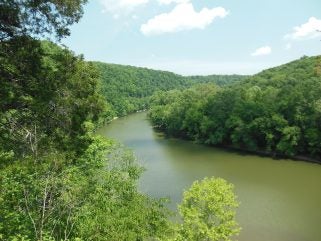
The US Department of Agriculture (USDA) has announced a series of clean energy projects in partnership with rural communities, aiming to reduce energy costs and create jobs. These initiatives, largely funded by President Biden’s Inflation Reduction Act, include significant investments in hydropower and other renewable energy sources.
Secretary Tom Vilsack emphasized the Biden-Harris Administration’s commitment to modern clean energy systems”The Biden-Harris Administration and USDA are committed to expanding access to modern clean energy systems and fueling options that strengthen the nation’s energy independence while creating good-paying jobs and saving rural Americans money.”
One of the highlighted projects is a new 3MW run-of-river hydroelectric plant at Lock and Dam 11 on the Kentucky River in Estill County, Kentucky. Lock 11 Hydro Partners LLC will receive approximately $16.6 million for this project, which will utilize modern practices to minimize environmental impact while ensuring affordable, clean energy for local communities.
In total, USDA is providing over $375 million through programs like the Powering Affordable Clean Energy (PACE) Program and the Rural Energy for America Program (REAP). These programs are part of the President’s Justice40 Initiative, which seeks to benefit disadvantaged communities.
PACE will support rural electric cooperative projects in states such as Alaska, Arizona, Kentucky, and Nebraska. For example, in Alaska, $100 million will be allocated to both the Golden Valley Electric Association for a battery energy storage system and the Alaska Electric and Energy Cooperative for a similar project.
REAP will fund 473 projects across 39 states and Puerto Rico, helping agricultural producers and rural businesses adopt renewable energy solutions and improve energy efficiency. These investments are expected to lower energy costs and create jobs, strengthening rural economies.
Secretary Vilsack concluded: “We are excited to partner with hundreds more family farms and small businesses as well as rural electric cooperatives and local clean energy developers to address the impacts of climate change, grow the economy and keep rural communities throughout the country strong and resilient.”






